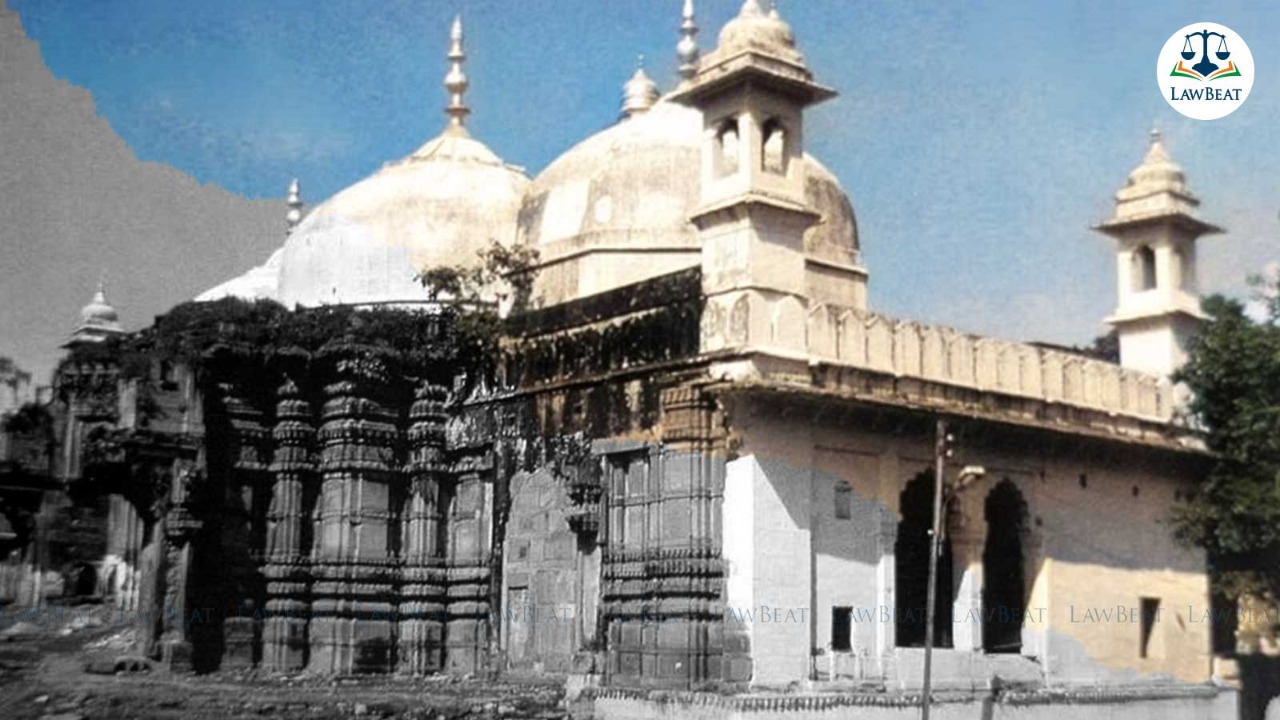NIA Court Orders Security for Judge Amid Gyanvapi Survey Controversy

The ASI survey at the site revealed a pre-existing Hindu temple predating the 17th-century mosque. Remnants like a central chamber, pillars, and inscriptions confirmed the temple's existence before modifications during Aurangzeb's reign, impacting historical and legal debates on Hindu-Islamic heritage coexistence
A Special Judge of the NIA court, recently, directed the Registrar General of the Allahabad High Court to provide security to Additional District Judge Ravi Kumar Diwakar, who ordered the Gyanvapi mosque survey. This directive stemmed from threats posed by Islamic fundamentalist groups, emphasizing the urgent need for protection.
Judge Diwakar gained prominence for his 2022 order to conduct a videographic survey of the Gyanvapi mosque premises. Special Judge Vivekanand Sharan Tripathi, in his communication, cited an FIR filed by the UP ATS against Adnan Khan. The FIR invoked multiple sections of the IPC and the UAPA, accusing Khan of threatening Judge Diwakar.
Adnan Khan allegedly managed an Instagram account from which he issued threats against Judge Diwakar, promoting violence. The FIR detailed Khan's activities, highlighting a post featuring a photo of Judge Diwakar with the inflammatory caption, ‘The Kafirs Blood Is Halal For You Those Who Fight Against Your Deen’, and the word ‘Kafir’ inscribed in red over Diwakar's eyes.
The FIR, lodged by the UP ATS Investigating Officer, emphasized that the provocative Instagram post reached a wide audience, inciting individuals aligned with Khan's ideology to target Judge Diwakar. It also mentioned the post's potential to inflame religious sentiments and foster animosity between different groups, constituting anti-national activities.
Judge Diwakar, serving in Bareilly, addressed the government secretary, expressing his concerns over the insufficiency of his security arrangements. His correspondence outlined the systematic brainwashing by Islamic fundamentalists, who incited followers against him, branding him an infidel and conspiring to murder him. He requested enhanced security measures and necessary actions to ensure his safety.
In May 2022, while serving as a Civil Judge at the Varanasi Court, Diwakar ordered the continuation of the Gyanvapi Mosque survey, revealing that his family constantly worried about his safety. Earlier, in April 2022, Diwakar directed an inspection of the Gyanvapi Mosque premises following petitions by five Hindu women. They sought year-long access to a Hindu shrine situated behind the mosque's western wall in Varanasi.
Background:
The Archaeological Survey of India (ASI) had conducted a comprehensive survey at the Gyanvapi Masjid site in Varanasi, revealing evidence of a pre-existing Hindu temple that predates the 17th-century mosque. This survey, covering an area of 2150.5 square meters, uncovered remnants such as the central chamber, pillars, and inscriptions, all pointing to a rich temple heritage. Scientific and architectural analyses confirmed the temple's existence before it was modified during Aurangzeb's reign, impacting the site's historical narrative and influencing legal discussions about the coexistence of Hindu and Islamic heritage.
The ASI's survey at the Gyanvapi Masjid site was conducted following a directive from Varanasi District Judge Ajaya Krishna Vishvesha, later affirmed by the Allahabad High Court and the Supreme Court. This survey aimed to determine the mosque's relationship with pre-existing structures through scientific examination, while excluding the wuzu pond area sealed by the Supreme Court.
The Anjuman Intezamia Masajid Committee expressed concerns in April 2024 to the Supreme Court about the gradual takeover of the Gyanvapi Mosque. Senior Advocate Huzefa Ahmadi conveyed this during proceedings, referring to a recent court order allowing 'Pooja' in the 'Vyas Tehkana' or southern cellar of the mosque.
Ahmadi argued for a stay on the order, citing serious concerns that allowing pooja in the cellar could lead to the gradual loss of the entire mosque. Chief Justice of India DY Chandrachud sought clarification on whether this would affect ongoing namaz at the mosque.
In February 2024, the Allahabad High Court denied the committee's plea to stop pooja in 'Vyas Tehkana'. Following a local court's January 31 decision, pooja ceremonies began after permission was granted to priest Shailendra Kumar Pathak, who sought the right to conduct Hindu rituals in the cellar.
[Inputs: Times of India]
